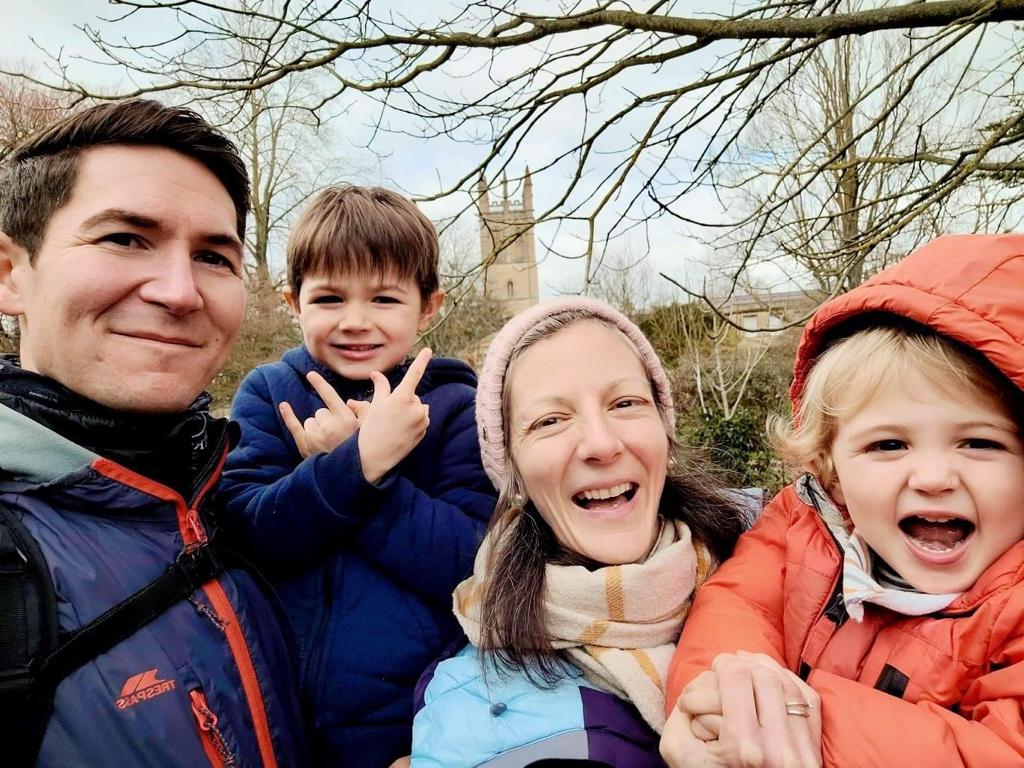
My 2.5-year journey with translocation renal cell carcinoma
April 30, 2024
This is a guest post by Dawn Dyson, 37, who was diagnosed with translocation renal cell carcinoma in 2022. Dawn…
Read More
This is a guest post by Dr. Arpita Desai, an oncologist at the University of California San Francisco specializing in genitourinary cancers. She summarized the results and takeaways for patients from key trials presented at the recent American Society of Clinical Oncology Genitourinary Cancers Symposium (ASCO GU).
Survival benefit seen for adjuvant pembrolizumab
Over the past five decades, researchers have conducted 17 clinical trials involving over 12,000 patients to test treatments for renal cell carcinoma (RCC) in the adjuvant setting – meaning treatments offered to patients after the removal of the kidney (nephrectomy) to prolong survival. However, none of them have shown any improvement in survival. The Keynote 564 trial is the first study to show an improvement in survival with the use of immunotherapy (pembrolizumab) compared to placebo in patients with clear cell RCC at increased risk of recurrence following a nephrectomy. This is the first immunotherapy drug to improve disease-free survival (DFS) in RCC and the first immunotherapy agent to improve survival in any genitourinary cancer. There was a 38% reduction in the risk of death with the use of adjuvant pembrolizumab compared to placebo and survival benefit was observed across key subgroups. There were no new safety findings reported. These results represent a significant advancement in kidney cancer and is a huge breakthrough for patients as it is the first and only study to show a survival benefit for patients with the use of immunotherapy in patients with a high risk of recurrence after a nephrectomy. Adjuvant pembrolizumab was FDA-approved in November 2021 and the recent survival benefit supports its use in the adjuvant setting. [2024 ASCO GU, Abstract LBA359]
New drug approved for patients who have progressed on multiple treatments.
Belzutifan is a new type of drug that works by blocking a specific protein called hypoxia-inducible factor-2α (HIF-2α). In a recent study involving patients with advanced kidney cancer who had previously tried other treatments, belzutifan showed better results compared to another drug called everolimus. The study found that belzutifan increased the time before the disease got worse and improved the overall response to treatment. This suggests that belzutifan could be a promising option for those with advanced kidney cancer who have already undergone other therapies. Patient reported outcomes showed better disease-specific symptoms and quality of life with Belzutifan compared to everolimus along with improvement in clinical responses in patients with clear cell RCC who have progressed on prior treatments including immunotherapy and TKIs. Based on this study, Belzutifan was approved by the FDA in December 2023. [2024 ASCO GU, Abstract 361]
Genetic Testing in RCC- who, when, and why?
The main goal of germline testing is to confirm a diagnosis because sometimes the signs and symptoms alone aren’t enough. Finding out if cancer runs in the family due to specific genes helps doctors choose the best treatment for the patient and can also help other family members understand their own risks and take necessary steps, said Dr. Ramprasad Srinivasan, a Senior Investigator and kidney cancer expert at the National Cancer Institute, who gave an overview of genetic testing in RCC during ASCO GU. It is estimated that 5-8% of all kidney cancers are inherited and there are over 15 genes associated with inherited kidney cancer. There are two types of genetic alterations- somatic and germline. Somatic or acquired genetic alterations are found in the tumor cells due to damage to the genes in a cell during a person’s life and germline alterations are hereditary and are present from birth in each cell. Genetic testing is crucial to identify patients at risk and usually includes patients with a strong family history of kidney cancer or family history of inherited RCC, if the age of onset is 46 years old, if there is cancer involving multiple areas of one kidney or both kidneys. When it comes to testing for certain conditions, the timing depends on the clincial situation. For people with tumors in one place, testing usually happens before deciding on treatment. If someone has cancer that has spread, testing can be done before starting overall treatment. For those who haven’t shown any signs but might be at risk, testing is usually done before the age when symptoms typically show up. This is especially crucial for conditions like Von Hippel-Lindau (VHL) especially in those under 5 years old and hereditary leiomyomatosis and renal cell cancer (HLRCC) especially in those under 8 years old, where early testing in childhood is important. Before getting tested for hereditary kidney cancer, it’s crucial to have a discussion with a knowledgeable healthcare professional who can explain the pros and cons. If someone in the family has already been identified with a specific type of hereditary kidney cancer, testing for that particular gene is usually suitable. However, if the risk is there but the type of hereditary kidney cancer isn’t clear, a panel of genes related to kidney issues might be tested. Testing for more general cancer susceptibility genes is rarely needed unless specific circumstances call for it. The National Comprehensive Cancer Network provides a comprehensive review of germline testing. [2024 ASCO GU, Abstract 361]
1 thought on “Expert Opinion: Key Trials from 2024 ASCO GU”
Is there any research on the use of Belzutifan in patients with papillary RCC? My husband is stage 4 Prcc and was just told that the treatment he was doing for the last four years is no longer working (Mets to liver and lungs now) and disease progression is speeding up. We are looking at clinical trials, dual immunotherapy or miracles. This drug is intriguing and I am just curious. Thank you